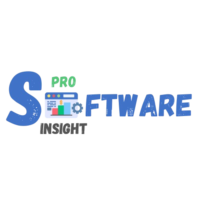Practice Management Software for Small Accounting Firms – Key Features

Table of Contents:
Intro
- What is Practice Management Software?
- Key Benefits of Practice Management Software
- Challenges of Implementing Practice Management Software
- Conclusion
Managing an accounting firm, even a small one, involves juggling multiple clients, deadlines, and compliance requirements. Without the right tools, inefficiencies can creep in, leading to missed opportunities and reduced profitability. This is where Practice Management Software (PMS) comes in – a powerful solution designed to streamline daily operations, improve client communication, and ensure compliance. But what should small accounting firms look for in such software? Let’s explore the key features that can make a real difference.
What is Practice Management Software?
Practice Management Software is a digital solution that helps accounting firms manage workflow, client relationships, document storage, billing, and task tracking. Unlike generic project management tools, PMS is specifically tailored to the needs of accountants, tax professionals, and financial advisors, integrating features that align with compliance regulations, invoicing, and tax deadlines.
For small accounting firms, investing in a PMS can be a game-changer, reducing administrative burdens and allowing teams to focus on delivering high-value services.
Key Benefits of Practice Management Software
1. Task and Workflow Automation
A PMS automates repetitive tasks such as client onboarding, document requests, and deadline reminders. This reduces manual work and ensures that nothing falls through the cracks.
2. Time Tracking and Billing
Many accounting firms struggle with accurate time tracking, which affects revenue. PMS provides built-in timers and billing features that streamline invoicing and payment collection, ensuring fair compensation for services.
3. Client Relationship Management (CRM)
Small firms thrive on strong client relationships. PMS includes CRM functionalities to track interactions, schedule follow-ups, and personalize communication, leading to better client retention.
4. Document Management and Security
Managing sensitive financial documents manually is risky. PMS offers secure cloud storage, version control, and encryption to keep client data safe and easily accessible.
5. Integration with Accounting Software
Seamless integration with QuickBooks, Xero, or other accounting tools eliminates duplicate data entry, ensuring consistency across platforms.
6. Compliance and Deadline Management
Staying compliant with tax laws and regulatory requirements is critical. PMS helps firms track filing deadlines, regulatory changes, and audit requirements, reducing non-compliance risks.
7. Reporting and Analytics
Data-driven insights enable firms to analyze productivity, revenue trends, and client profitability, empowering better decision-making.
Challenges of Implementing Practice Management Software
- Initial Learning Curve: Adopting new technology requires training and adaptation.
- Cost Considerations: Some solutions may be expensive, though many providers offer scalable pricing plans.
- Data Migration: Moving from manual or legacy systems can be time-consuming.
- Feature Overload: Choosing the right PMS that fits business needs without excessive complexity is crucial.
FAQs
Is Practice Management Software necessary for a small accounting firm?
Yes, even small firms benefit from streamlined processes, reduced administrative workload, and improved client management.
How much does Practice Management Software cost?
Costs vary depending on features and firm size. Some providers offer plans starting as low as $30 per month, while more comprehensive solutions can cost several hundred dollars.
Can PMS integrate with my existing accounting software?
Most PMS platforms integrate with popular accounting tools like QuickBooks, Xero, and FreshBooks, ensuring seamless workflow.
How do I choose the right PMS for my firm?
Consider your firm’s size, workflow needs, budget, and desired integrations before making a decision. Free trials can help assess suitability.
Conclusion
Choosing the right Practice Management Software can transform how a small accounting firm operates, making processes more efficient, improving client relationships, and ensuring compliance. While challenges exist, the long-term benefits far outweigh the initial investment. By selecting a PMS that aligns with your firm’s needs, you set the foundation for streamlined operations and sustainable growth. If you’re considering adopting a PMS, start by evaluating your firm’s specific needs and testing a few options to find the best fit.
